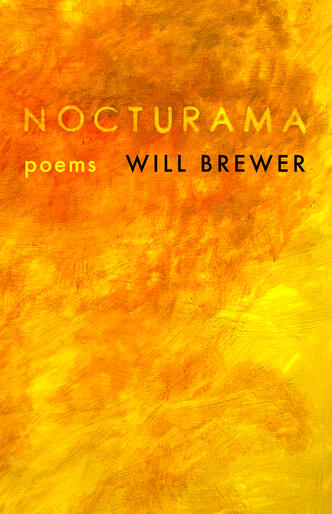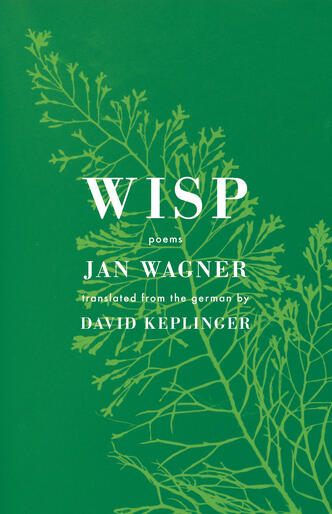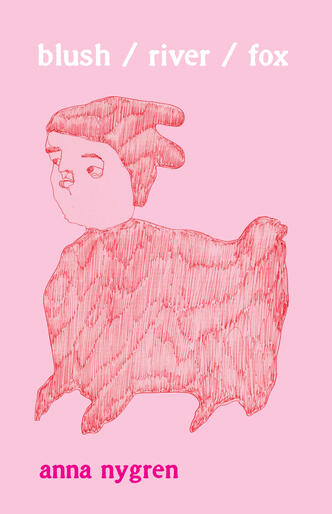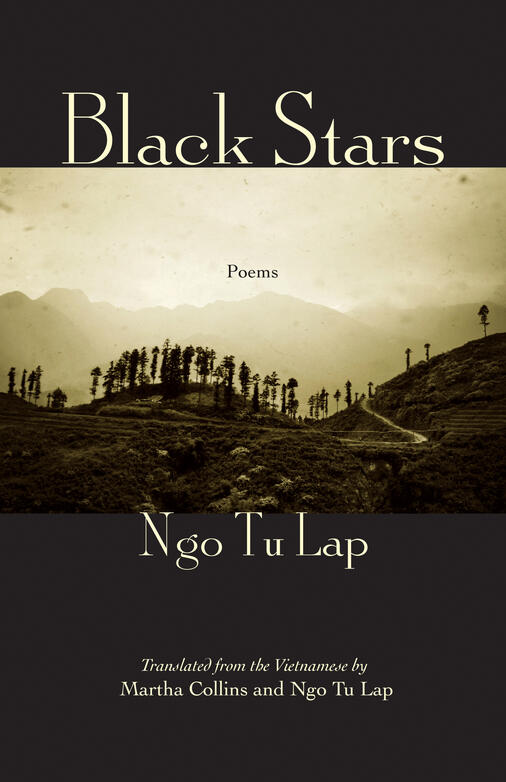
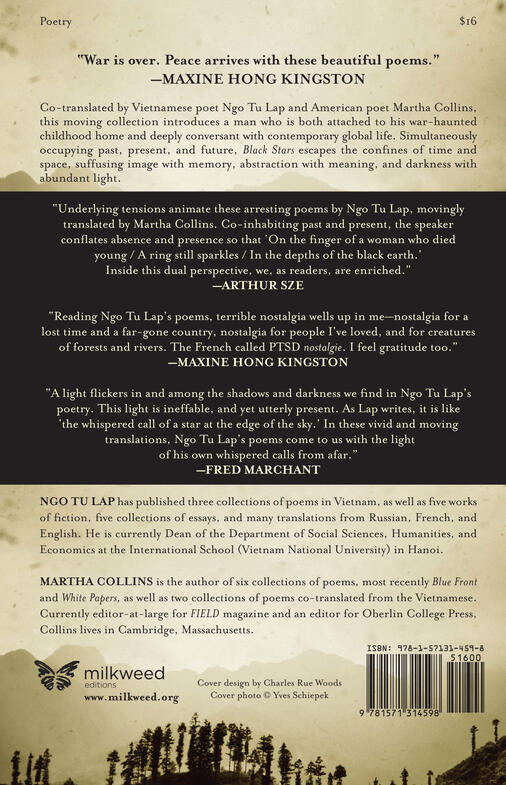
Black Stars
A beautifully rendered translation by acclaimed American poet Martha Collins, Black Stars introduces Vietnamese poet Ngo Tu Lap, who is both attached to his war-haunted childhood home and deeply conversant with contemporary global life.
Simultaneously occupying past, present, and future, Black Stars escapes the confines of time and space, suffusing image with memory, abstraction with meaning, and darkness with abundant light. In these masterful translations—printed alongside the original Vietnamese—the poems sing out with the kind of wisdom that comes to those who have lived through war, traveled far, and seen a great deal. While the past may evoke village life and the present a postmodern urban world, the poems often exhibit a dual consciousness that allows the poet to reside in both at once. From the universe to the self, we see Lap’s landscapes grow wider before they focus: black stars receding to dark stairways, infinity giving way to now. Lap’s universe is boundless, but also “just big enough / To have four directions / With just enough wind, rain, and trouble to last.”


